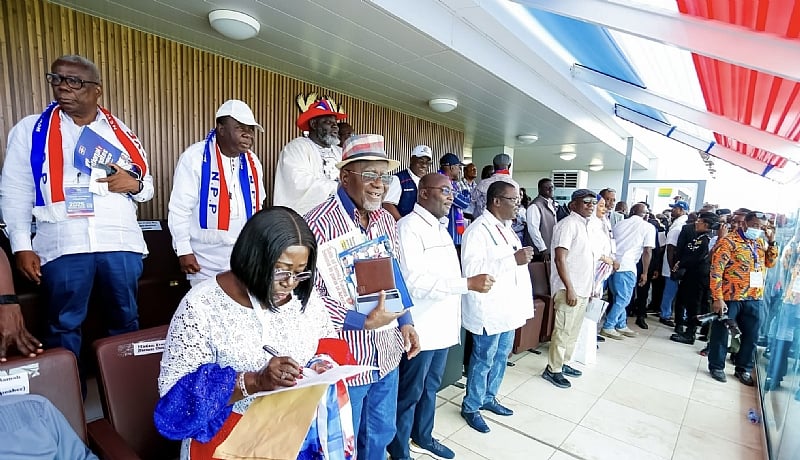The New Patriotic Party’s (NPP) delegates’ conference was a golden opportunity to redefine internal party democracy in Ghana. Instead, the party’s constitutional amendments – introducing an elected Communications Director and a superficial expansion of the electoral college – reveal a troubling commitment to the status quo.
These changes not only fail to address the rot in our political system but also embolden the very forces that undermine democracy – special interest groups, money bags and unchecked politicking.
It’s time for Ghana’s parties, including the NPP and the National Democratic Congress (NDC), to embrace bold electoral reforms that prioritize inclusivity, transparency, and accountability.
The decision to elect a Communications Director is a baffling step backward. Ghana’s political parties are already drowning in excessive elections, draining resources and fueling factionalism. A forward-thinking party should limit elections to the Chairman and General Secretary, or the core executives – and empowering these leaders to appoint deputies and other officers based on stringent criteria: competence, gender balance, ethnic diversity, and religious inclusivity. Such a system could guarantee at least 40% female representation, reflecting Ghana’s demographic reality, and ensure leadership that mirrors our diverse nation.
By adding another elected post, the NPP perpetuates a culture of popularity contests over merit, sidelining talented women and minorities who may not have the resources to compete in costly campaigns.
Again, NPP’s attempt to expand its electoral college is not just inadequate—it’s superfluous. True democratic reform demands that all card-bearing members of a party form the electoral college for internal elections. Anything short of this hands power to a select few, emboldening money bags who thrive on vote-buying and intimidation.
Like the NDC’s own cosmetic efforts, the NPP’s amendment fails to address the core issues plaguing internal elections: the influence of wealth and the absence of transparency. Expanding the delegate pool without tackling these problems is like treating a broken leg with a bandage — it’s a gesture, not a solution.
By now, the conversation in Ghanaian politics should center on transformative electoral reforms, not half-measures. The NPP’s amendments miss the mark when we desperately need changes that hold parties and candidates accountable.
First, we must mandate full disclosure of campaign funding. Every cedi spent on internal and national elections should be traceable, with candidates required to publish their funding sources. This would expose the money bags who bankroll campaigns to buy influence, fostering a culture of transparency.
Second, we must cap campaign periods to curb the endless politicking that distracts from governance. Internal party contests should be limited to three months, and national elections to five months of outdoor campaign activities. Off-season politicking – rallies, billboards, and media stunts – should be banned, allowing leaders to focus on policy and service delivery rather than perpetual campaigning.
These reforms would level the playing field, reduce the financial burden on candidates, and restore public trust in our democratic processes.
The NPP’s conference may have been colourful and largely incident free, but in public discourse following the delegates’ conference, the focus should be on the missed opportunity to lead Ghana toward a more inclusive and accountable political system.
By clinging to excessive elections and a flawed electoral college, the party entrenches a system where money trumps merit. As Ghanaians, we deserve better. We need parties that reflect our diversity, reward competence, and reject corruption.
The Trans African Tourism and Unity Campaign, which I lead, seeks to unite our continent through shared heritage and open borders. But unity begins at home, within our political institutions.
The NPP, like all Ghanaian parties, must embrace reforms that empower all card-bearing members to vote in internal elections, mandate financial transparency, and limit campaign periods. Only then can we build a political culture that serves the people, not the purses of a few. Let’s stop rearranging deck chairs and start rebuilding the ship.
Ras Mubarak, Former MP
Contact: [email protected]


